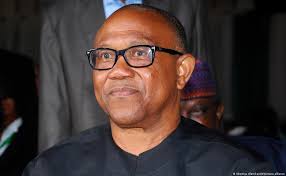
President Bola Tinubu’s recent announcement of a state visit to Brazil has sparked excitement about Nigeria’s potential economic growth through new global partnerships. While it’s encouraging to see efforts to diversify Nigeria’s economy, one question keeps coming up: Why does the President have to leave the country every single time when making strategic plans?
Is it really necessary for Nigeria’s highest office to travel halfway across the world to discuss important economic moves? Couldn’t these conversations and deals be initiated or even finalized within Nigeria or through closer African neighbors?
The Case for Staying Closer to Home
Nigeria is Africa’s largest economy and one of the continent’s political powerhouses. Surely, with all the resources, diplomatic channels, and infrastructure we have, there should be room to host important summits, dialogues, and deal-making sessions right here.
Moreover, many of Nigeria’s most pressing economic challenges—like power shortages, agriculture modernization, and trade facilitation—are shared with other African countries. Wouldn’t it make more sense to deepen ties with nearby economies before always turning to distant countries like Brazil?
Cost and Perception
International trips by heads of state are expensive and time-consuming. There’s the direct financial cost of travel, security, and protocol, plus the opportunity cost of the President being away from urgent domestic issues.
Besides, frequent trips abroad sometimes give the impression that Nigeria’s solutions lie outside its borders, which can be demoralizing for citizens who want to see tangible progress at home.
Why Brazil? Why Not Africa?
Brazil’s growing role in global affairs and leadership in sectors like agribusiness is admirable. However, Africa itself is home to dynamic economies such as South Africa, Kenya, Rwanda, and Egypt, all making significant strides in agriculture, energy, and trade.
Why not focus more on strengthening regional partnerships through ECOWAS, the African Union, or the African Continental Free Trade Area (AfCFTA)? These collaborations can yield quicker, more relevant benefits and help build Africa’s economic independence.
Balancing International Diplomacy with Domestic Focus
Of course, engaging with global powers is important. But there must be a balance. The President’s presence in Nigeria is crucial for pushing internal reforms, engaging with local industries, and responding swiftly to domestic crises.
Strategic planning can and should happen at home with Nigeria’s own businesses, civil society, and experts. When international visits are necessary, they should complement—not replace—robust domestic action.
President Tinubu’s Brazil visit symbolizes Nigeria’s desire to grow economically. But to truly transform Nigeria, the country must also believe in its own potential and prioritize building strong partnerships right here in Africa and at home.
The world won’t wait for Nigeria’s power to be “switched on” through distant deals alone. Sometimes, the most strategic moves happen on the ground, close to where people live and work every day.
Isn’t it time for Nigeria’s leadership to start putting the country first—both figuratively and literally?




